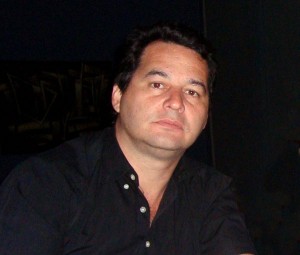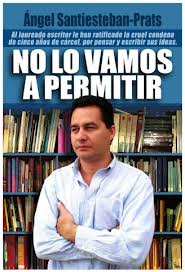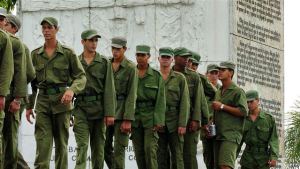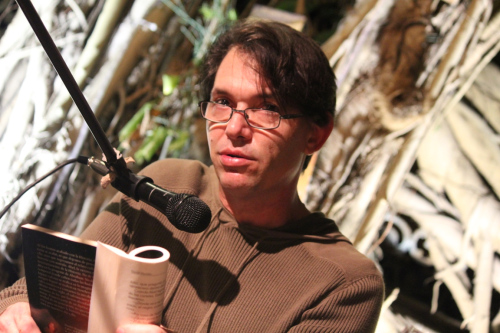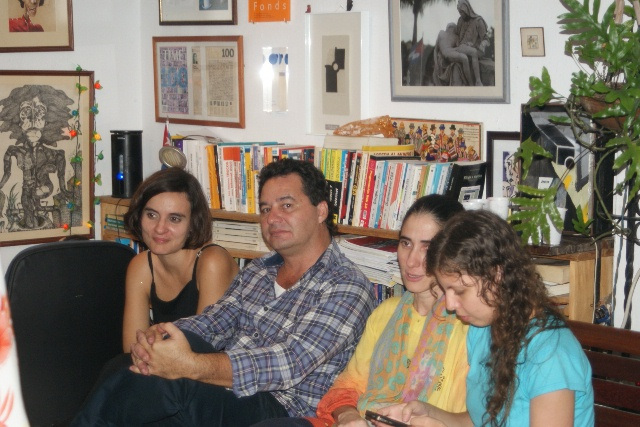The prize-winning author (for the books Dream of a Summer’s Day, UNEAC Prize 1995, The Children Nobody Wanted, Alego Carpentier Prize 2001, and Blessed Are Those Who Mourn, winner of the Casa de las Americas prize in 2006) declared that before he was condemned to prison without proof, his former colleagues in Cuba maintained a complicit silence, in order to preserve their little privileges.
It is not unique. So much of the imprisonment of some writers who dissent from the official ideology, as well as the silence and complicity of the intellectuals faced with the arbitrariness of Cuban political culture, has been a constant during the more than half a century of revolution.
Since its founding on August 22, 1961, the Union of Writers and Artists of Cuba (UNEAC), have been nothing more than “a hollow shell of posers,” as defined by the poet Heberto Padilla in his polemic with the writer Lisandro Otero, in the pages of the cultural supplement, The Bearded Cayman.
Already by 1965, “every man for himself” ran through the halls of UNEAC, and the complicit and ominous silence became permanent among its members, who did not raise their voices against sending the poet Josí Mario Rodríguez “Military Units to Aid Production (UMAP) concentration camps,accused of being “a dissolute fake leftist”, along with other members of Ediciones El Puente.
Nor did they speak up after a speech by Fidel Castro, in March 1966, when he lashed out at the homosexuals of UNEAC and threatened to send them to work in agriculture. Much less did the writers and artists raise their voices when, in the so-called “Five Grey Years” the poets imprisoned Lina de Feria and Heberto Padilla were imprisoned, as well as the writers Josi Lorenzo Fuentes, Reinaldo Arenas and Manuel Ballagas, for alleged defamation against the Revolution or for writing subversive texts.
It was the members of the UNEAC who in the preface of the book The Seven Against Thebes (theater) by Anton Arrufat and Out of the Game (poetry) by Heberto Padilla–awarded the prize of that organization, in 1968–denounced them as “ideologically opposed to our revolution. “
Perhaps it is this “hollow shell of posers” who came out with the accusations launched from the magazine Olive Green against Anton Arrufat, Heberto Padilla, Guillermo Cabrera Infante and Josi Triana, among other writers, by a censor hidden under the pseudonym of Leopold Ávila?
The sense of sin sowed by Che in the Cuban intellectuals who did not fight against the dictatorship of Fulgencio Batista, plus their personal cowardice and some privileges astutely granted by the regime, made them into docile scribes who write only at the dictates of their master.
The writers who fall from grace are like a plague that the rest distance themselves from, and not only were they out of the guild, but also of the circle of friends, until they are vindicated, if they happen to still be alive, by some so-called political cultural rectification. This base act was illustrated by the writer Eduardo Heras in his memoirs about the intellectual purges, collected in a presentation entitled “The Five Grey Years: Testimony of Loyalty”, delivered like an exorcism against censorship at the Instituto Superior de Arte (ISA) in 2007.
The test of “loyalty,” according to Heras, is when every day returning from work you pass another man. You look, but never greet him. The only thing that unites them in that wretched 1971, is that both are writers and meet an unusual punishment for writing books labeled as counterrevolutionary. However, he adds, the only thing that unites them in this crucial moment of their lives is the ability of resistance to injustice.
So, according to what was written by Heras León, to endure humiliation, abuses, to remain silent and not even have the courage to greet another outcast, is an act of unity. Unity in misery? In human misery?
However, later, now vindicated, didn’t Heras himself, along with Arrufat, Arango, Pablo Armando Fernandez, Cesar Lopez, Miguel Barnet, Nancy Morejon and company, sign the UNEAC Complaint against the Ten Intellectuals who asked the regime for reforms May 31, 1991?
As Heras and other members of the UNEAC expressed in their years of anguish, the signatories of the Charter of Ten, more than colleagues, were friends, and shared the good and bad in this open and democratic social project which then devoured them. So why did they support with their signatures the attack and marginalization of renowned literary colleagues like Manuel Díaz Martínez, Raúl Rivero, Manuel Granados, José Lorenzo Fuentes and Bernardo Marques-Ravelo? Did they ever once extend a hand? Say hello to them again?Did Heras León or Anton Arrufat dare to raise their voices for Maria Elena Cruz Varela, Roberto Luque Escalona, Fernando Velázquez Medina, Víctor Serpa Riestra and Nancy Estrada Galván, also signers of the Charter of Ten?
When, two years later, a mob instigated by the State Security forced Maria Elena Cruz Varela to swallow her poems, and she was sentenced to two years in prison for signing the Charter of Ten and creating the Alternative Opinion movement, no member of UNEAC protested. Nor did they when the poet Raúl Rivero was sentenced to twenty years in prison, in 2003, for exercising a free press. Quite the contrary: in an Open Letter they condemned all these acts and called them conspirators against the Revolution.
Therefore, although proven to be innocent, the writer Ángel Santiesteban will be sent to prison, the only place, along with exile, where the children the Revolution didn’t want nor will want end up. His comrades from UNEAC, in the best case, will remain silent one more time, and of those “above” don’t “direct” them to sign some condemnatory document.
 Victor Manuel Dominguez is an independent journalist living in Havana. vicmadomingues55@gmail.com
Victor Manuel Dominguez is an independent journalist living in Havana. vicmadomingues55@gmail.com
Published by Cubanet
February 14 2013
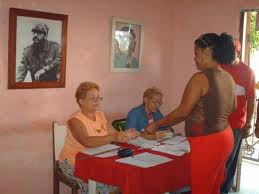 These have been rigorous days on the island of Cuba, the first elections after the 6th Congress of the Communist Party of Cuba. Full of bureaucracy, an evil that affects us deeply.
These have been rigorous days on the island of Cuba, the first elections after the 6th Congress of the Communist Party of Cuba. Full of bureaucracy, an evil that affects us deeply.

